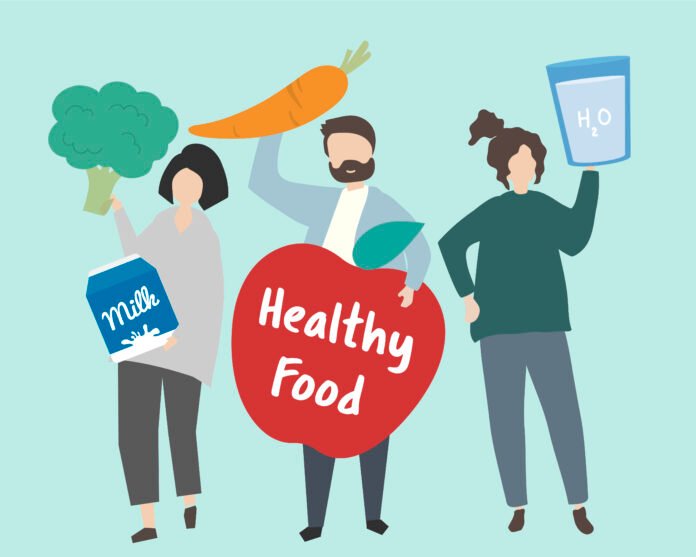Before the invention of contemporary medications, our ancestors relied on natural remedies for centuries. Food is at the center of that natural pharmacopeia. The age-old wisdom of using food as medicine is seeing a strong comeback in the modern era as we negotiate a more complicated health environment. But does science support the idea that our food can serve as medicine, or is it just wishful thinking?
Most people say “yes.” Food has a significant and well-established role in preventing, treating, and even reversing chronic diseases, even though it cannot take the place of life-saving drugs in emergencies.
The Science Behind “Food as Medicine

It’s not magic; it’s biochemistry. The foods we consume are packed with a vast array of compounds that interact with our bodies at a cellular level:
- Macronutrients (carbohydrates, proteins, and fats): These provide the energy and building blocks our bodies need to function. Quality matters immensely: complex carbs from whole grains versus refined sugars, lean proteins versus processed meats, and healthy fats versus trans fats.
- Micronutrients (Vitamins and Minerals): These are essential for countless bodily processes, from immune function and hormone production to nerve signaling and bone health. Deficiencies can lead to a cascade of health problems.
- Phytonutrients (Plant Compounds): This is where much of the “medicine” in food truly shines. Thousands of unique compounds found in plants, like antioxidants, anti-inflammatory agents, and detoxifying enzymes, protect our cells from damage, reduce inflammation, and support overall health. Think resveratrol in grapes, curcumin in turmeric, or sulforaphane in broccoli.
- Fiber: Crucial for digestive health, fiber also plays a role in blood sugar regulation, cholesterol management, and feeding beneficial gut bacteria, which profoundly impacts our immune system and even mood.
- Probiotics and Prebiotics: Found in fermented foods and certain plant foods, these support a healthy gut microbiome—a bustling ecosystem of bacteria that is increasingly recognized as central to overall health.
How Food Acts as Medicine in Practice
So, how does this translate into real-world health benefits?
- Inflammation Reduction: Chronic inflammation is a root cause of many diseases, including heart disease, diabetes, arthritis, and some cancers. Foods rich in omega-3 fatty acids (fatty fish, flaxseeds), antioxidants (berries, leafy greens), and certain spices (turmeric, ginger) can significantly cool inflammatory fires.
- Blood Sugar Regulation: A diet high in refined carbohydrates and sugars can lead to insulin resistance and type 2 diabetes. Whole grains, lean proteins, healthy fats, and fiber-rich vegetables help stabilize blood sugar levels, preventing spikes and crashes.
- Heart Health: Foods rich in soluble fiber (oats, beans), healthy fats (avocado, nuts, olive oil), and plant sterols can help lower cholesterol, improve blood pressure, and reduce the risk of cardiovascular disease.
- Gut Health and Immunity: A diverse diet rich in fiber, fermented foods, and a variety of fruits and vegetables nourishes a healthy gut microbiome, which in turn strengthens our immune system and can even influence mental well-being.
- Cancer Prevention: Research continues to highlight the role of plant-based diets, rich in antioxidants and phytonutrients, in reducing the risk of various cancers by protecting cells from damage and inhibiting cancer cell growth.
- Weight Management: Whole, unprocessed foods tend to be more satiating and nutrient-dense, making it easier to maintain a healthy weight without feeling deprived.
It’s Not a Magic Bullet: Key Considerations
While food is incredibly powerful, it’s important to have realistic expectations:
- Consistency is Key: The benefits of food as medicine accumulate over time with consistent healthy eating habits. A single healthy meal won’t undo years of poor nutrition.
- Individual Needs Vary: What works for one person might not work for another. Dietary needs can be influenced by genetics, existing health conditions, lifestyle, and more. Consulting with a healthcare professional or registered dietitian can provide personalized guidance.
- Supplements vs. Whole Foods: While supplements can fill nutritional gaps, they rarely offer the same synergistic benefits as whole foods, which contain a complex array of compounds working together.
- Not a Replacement for Medical Care: For acute illnesses, severe deficiencies, or chronic conditions requiring medication, food is a complementary therapy, not a substitute for professional medical advice and treatment.
Embracing Food as Your Ally
Eating bland, restrictive meals isn’t the only way to think of food as medicine. It entails adopting a colorful, varied diet full of whole, unprocessed foods. It entails making dietary choices that promote your body’s natural healing processes, nourish it, and enhance your long-term health.
Think about the amazing power on your plate the next time you eat. Food is a powerful tool for vitality, health, and disease prevention; it is more than just fuel. You can actually use the medicine in your food by choosing foods with awareness and knowledge.
